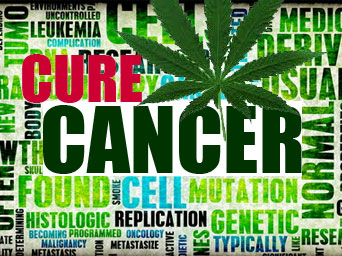This is a touchy subject because as medicinal marijuana advocates, we have to discern what is verified truth and what is exaggeration, by the books, by the research. There has been a great deal of research done regarding THC’s effect on cancer patients. However, understanding these studies in proper context is important.
Brain Cancer:
The British Journal of Cancer, sponsored by the Department of Biochemistry and Molecular Biology at Complutense University in Madrid, stated that THC can “inhibit tumor growth” and found no problems in delivery. Their studies showed the decrease of tumor cells in two out of the nine patients.
Breast Cancer:
A study quoted in the U.S. National Library of Medicine conducted a study on breast cancer, stating cannabis (specifically CBD or cannabidiol) “inhibits breast cancer cell proliferation.” They also showed evidence from their experiments that it also minimizes the size of tumor mass.
Lung Cancer:
For lung cancer, the Harvard Medical Schools Experimental Medicine Department stated in Oncogene, that THC medicinal treatment can inhibit what is called epithelial growth factor, which propels lung cancer cell migration. A Preet, R K Ganju and J E Groopman all listed THC as “novel therapy” with the ability to control the growth of certain lung cancers.
Prostate Cancer:
A study by the United States National Library of Medicine showed the ability of cannabis to treat prostate cancer by stimulating cannabinoid 1 and 2 receptors with the anti-androgenic properties of cannabis. The test results were favorable, and included a decrease in cancer cell viability.
Yes, many of these tests were performed on animal subjects, as cancer testing among human beings proves difficult for a variety of legal and financial reasons. However, all of these test results strongly indicated—at the very least—that there is a link between cancer inhibition and cannabis. To ask for more specified research, at this point, is far from a radical notion.

Leave A Comment